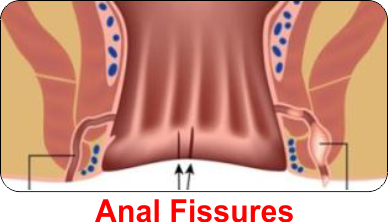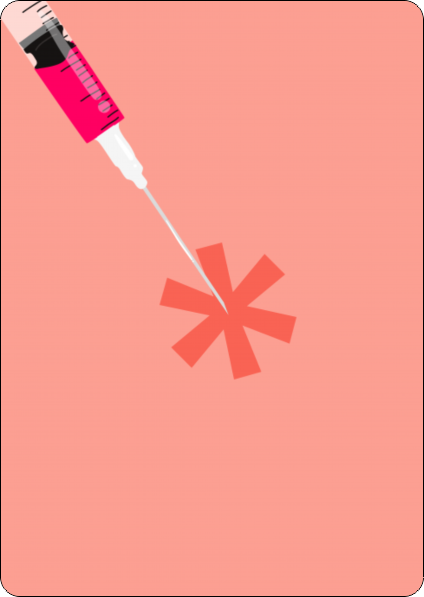

Anal fissure or fissure-in-ano is a common proctologic disease. Although seemingly trivial, it can lead to extreme discomfort and pain. The condition is usually noticed as a small drop of blood on the toilet paper or a streak of blood on stools. One may feel itchy in the area. An acute fissure can lead to intense pain during defecation as there is a tear in the skin around the anus. The anal skin has a rich nerve supply, therefore even a small tear causes extreme pain. Many people describe it as a sharp, intense, burning pain, making it very uncomfortable to sit down. A patient suffering from fissure dreads even the thought of going to the toilet. Slightly more common in females, fissures are often found in young adults. When a fissure becomes chronic, pain may be less but it may be associated with a sentinel pile or an anal papilla which is felt like a small piece of extra skin in the area.
Home remedies for an acute fissure include taking a Sitz bath, applying olive oil/coconut oil/ghee, consuming 1-2 tbsp. of apple cider vinegar and taking a fiber-rich diet to keep the stools soft. Many a times, an acute fissure heals on its own. However, in case it doesn’t heal in 4-5 days or if you have a chronic fissure, it’s best to visit a Proctologist.



Injection of Botox is a popular non-surgical option to treat chronic anal fissure. Most people have at least some relief in pain with it. It is effective in almost 60-70% cases and can be easily repeated after 6 months. There is a chance that in a small percentage of people it might not be effective and in that case other treatment options need to be considered. Lord’s Dilatation is an old method of treatment where the anal sphincter is manually stretched to relax the spasm. However, it is no longer favoured due to high rates of fecal and flatus incontinence. Partial Lateral Internal Sphincterotomy ( PLIS/LIS ) is commonly used to repair a fissure. The procedure helps by lowering the resting pressure of the internal anal sphincter. With the advent of Laser, the treatment of chronic fissure has moved in its favour. The procedure is called Laser Sphincterotomy ( LSP ) and is almost bloodless. Additionally, the chronic fibrosed scar is debrided with the laser. This prevents any long-term discomfort and enables a quicker recovery.
Our team of doctors spell out different treatment modalities, so that patients can take well-informed decisions about which treatment to opt. Having worked in the field of colo-proctology for years, our surgeons have immense experience and expertise under their belts. So, for someone suffering from an anal fissure or any other anorectal problem like piles, fistula or constipation, our advice would be to be wise and see a Proctologist.
